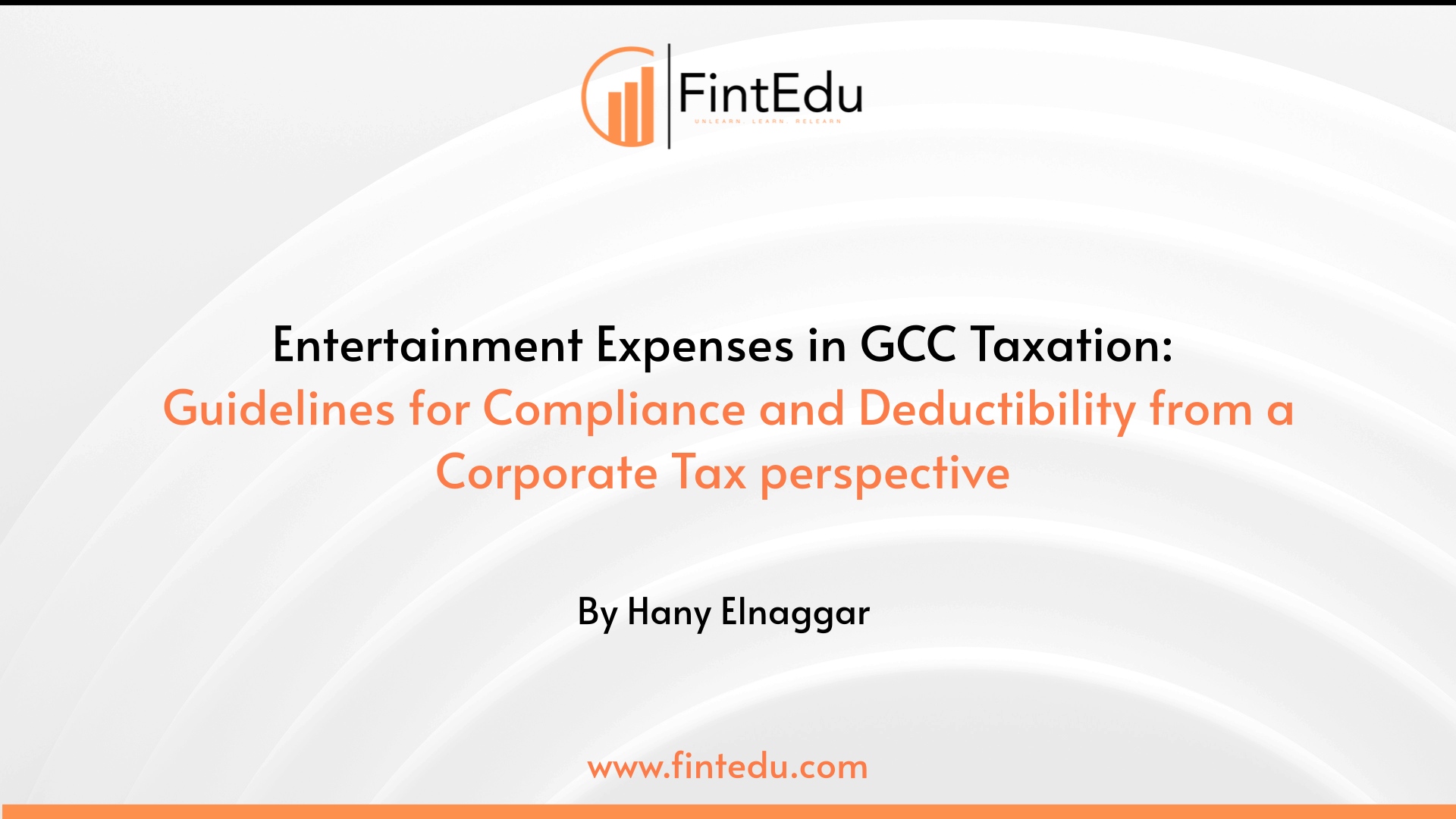LISTEN TO THIS ARTICLE
Introduction of Bahrain’s Domestic Minimum Top-up Tax for Multinational Enterprises: A Step Toward Global Economic Alignment
The Kingdom of Bahrain announced the introduction of a Domestic Minimum Top-up Tax for Multinational Enterprises as outlined in Decree Law (11) of 2024 with 15% tax rate. The necessary Executive Regulations to implement the provisions of the Law would be issued to provide detailed guidance on various aspects.
The new framework for Multinational Enterprises is fully aligned with the Organisation for Economic Co-operation and Development (OECD) guidelines, underscoring Bahrain’s commitment to promoting global economic fairness and transparency.
Broad provisions of the Decree Law are outlined below:
1. Effective date
Effective from 1 Jan 2025
2. Scope
a) Tax to be levied on ‘Taxable Income’ of constituent entities ‘located’ in Bahrain. Location criteria to be satisfied based on tax residency status of the entity (i.e. legal incorporation, place of effective management).
b) Twin conditions to be fulfilled:
- Annual Revenue of MNC Group is at least Euro 750 million in the consolidated financial statements of the Ultimate Parent Entity for at least 2 of the immediately preceding 4 fiscal years
- Where Effective Tax Rate is less than the Minimum Rate (i.e. 15%) for a fiscal year
3. Additional Relief from tax applicability
In following additional scenarios, tax shall not be applicable or shall be equal to zero:
a) Entity is an Excluded Entity (i.e. Government bodies, international organizations, Pension funds etc.).
b) Transitional Country-by-Country Reporting Safe Harbor – Revenue and profit/loss does not exceed prescribed amounts and alternate effective tax rate is at least 16% or 17% for fiscal years 2025 or 2026, respectively.
c) Constituent Entity’s income as determined under Simplified Computation (to be prescribed) is not more than substance-based income exclusion.
d) Exclusion for Initial Phase of International Activity - Presence in not more than six jurisdictions, book value of tangible assets of all entities does not exceed Euro 50 million and ownership interests held by entities other than those which applies Income Inclusion Rule as prescribed in OECD guidelines
4. Registration and Deregistration Procedures
a) Registration to be taken by the Filing Constituent Entity with National Bureau of Revenue.
b) Excluded Entity may be required to register for tax, as necessitated by Bureau.
c) A request for deregistration may be submitted depending on the cases prescribed in the Regulations.
5. Financial Statements
Consolidated Financial Statements shall mean the following:
a) Financial Statements prepared in accordance with Acceptable Financial Accounting Standard in which assets, liabilities, income, expenses and cash flows of the Entity and the Entities in which it has a controlling interest are presented as those of a single economic unit.
b) Financial Statements of an Entity that have been prepared in accordance with Acceptable Financial Accounting Standards, where the Entity meets the definition of being a Group as mentioned in the Decree.
c) If the Ultimate Parent Entity does not adopt Acceptable Financial Accounting Standards, Financial Statements that have been prepared subject to adjustments to prevent any material competitive distortions.
d) Where the Ultimate Parent Entity does not prepare financial statements in accordance with a), b) or c) above, then Financial Statements prepared in accordance with Authorized Financial Accounting Standard (either Acceptable Financial Accounting Standard or another Financial Accounting Standard adjusted to prevent material competitive distortions).
6. Tax Return and Amendment Procedures
a) Filing Constituent Entity of the Multinational Group shall be responsible for paying the tax, file tax return and handling all tax administration matters in Bahrain.
b) The Filing Constituent Entity shall submit a Tax Return to the National Bureau of Revenue for every fiscal year through a prescribed form and within the prescribed period
c) In case of necessary amendment in Tax Return, Filing Constituent Entity shall immediately submit an amended Tax Return in accordance with conditions prescribed.
d) Filing Constituent Entity shall notify the Bureau if the Revenue Test is not met and accordingly, decide not to file a Tax Return
7. Tax Payments and Refund
a) Tax due shall be paid by way of advance payment or in installments as prescribed.
b) Tax computation and payment to be made in Bahraini Dinar.
c) Claim for Tax refunds may be submitted no later than 5 years from date of payment of tax.
8. Tax Audit and Review, Objection & Appeal procedures
a) National Bureau of Revenue may conduct tax audits to verify the accuracy of tax returns and to ensure compliance. In the process, the Bureau may request necessary data, clarifications and documents from the relevant party.
b) A review request may be submitted to the Bureau within 60 days from date of notification of decision. If the concerned party objects to the review decision, an objection may be filed before the Tax Objections Committee within 60 days. If aggrieved by the decision of the Tax Objections Committee, the concerned party can file an appeal before the competent Court within 60 days.
9. Penalties and fines
a) Failure to apply for registration – 100,000 Bahrani Dinars
b) Failure to submit tax return – 30% of tax amount
c) Failure to pay tax or delayed payment of tax –1% of unpaid tax per month (subject to cap of 70% of unpaid tax)
d) Submission of incorrect tax return – 30% of tax amount or 20% of tax amount (in case of voluntary disclosure) or 100,000 Bahraini Dinar (in case tax is not underreported)
e) Tax Evasion (intentional act to commit default in certain cases) – 100% of Tax Due (subject to 300% cap) and imprisonment between 3 months – 5 years. In case of repeat default within 6 years, the penalty shall be doubled.
10. Tax Evasion
Tax Evasion means intentionally committing any of the following acts:
a) Failure to register for Tax purposes.
b) Failure to submit the Tax Return or pay the Tax Due within the prescribed deadlines.
c) Submission of an incorrect Tax Return.
d) Alteration of data in commercial books, agreements, etc. with the intent of misleading the Bureau by understating profits, inflating losses, affecting the computation of the Tax Due, or obtaining a Tax advantage.
e) Submission of incorrect, forged or counterfeit data, documents, records, accounting books, financial statements, or invoices with the intention of obtaining tax advantages.
f) Concealing or failing to disclose one or more activities subject to Tax.
g) Destroying or concealing data, documents, records, accounting books, etc, that must be retained, thereby affecting the Bureau's ability to verify elements of income computation and the Tax Due.
h) Failure to maintain records, accounting books, financial statements, and all documents, invoices, and materials that must be retained in a regular manner.
11. Transitional provisions
Deferred tax assets/liabilities (other than excluded items) of MNC Group entities to be considered to determine ETR.
The introduction of the Domestic Minimum Top-up Tax in Bahrain marks a significant development in the nation’s tax policy, demonstrating its commitment to aligning with international standards set by the OECD. As the framework comes into effect from January 2025, multinational enterprises operating within Bahrain will need to closely monitor the issuance of the Executive Regulations for comprehensive guidance. This move not only aims to ensure fair taxation but also strengthens Bahrain's role in fostering a transparent and equitable global tax environment.
Disclaimer: Content posted is for informational and knowledge sharing purposes only, and is not intended to be a substitute for professional advice related to tax, finance or accounting. The view/interpretation of the publisher is based on the available Law, guidelines and information. Each reader should take due professional care before you act after reading the contents of that article/post. No warranty whatsoever is made that any of the articles are accurate and is not intended to provide, and should not be relied on for tax or accounting advice.
Contributor
Related Posts

@@PLUGINFILE@@/Withholding%20Tax%20%28WHT%29%20in%20the%20GCC%20A%20Summary%20Analysis%20and%2...
Read More
@@PLUGINFILE@@/Entertainment%20Expenses%20in%20GCC%20Taxation%20%20Guidelines%20for%20C...
Read More
@@PLUGINFILE@@/Navigating%20Real%20Estate%20Investment%20for%20Natural%20Persons%20Key%2...
Read More